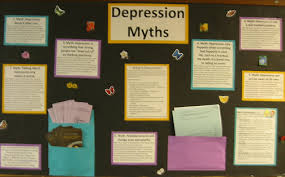Depression advice for family: Recognize. Talk. Listen.
Recognize Depression
It can be difficult recognizing that a loved one is depressed. After all, you see the person constantly and believe you really know him/her. Depression creeps in and before you realize, there’s something weird about your family member. Your loved one isn’t the same person you’ve known for years. It’s like he/she has been replaced with a doppelganger.
The person is tired all the time, moody, and withdrawn. When you offer to do something the person usually enjoys, he/she snaps no, and then gets into an argument with you. Your loved one may have developed weird sleep patterns – up late at night, then tired most of the day. Food is left untouched or half eaten. There’s more alcohol consumed than normal. You might notice cuts, bruising, or missing clumps of hair.
Spotting the signs of depression can be difficult. The good news is that depression can ease up with the proper treatment and support. Therapy and medication are great, but without the love and support of family, depression will suck the person down again. It’s love that really makes the difference. Knowing that someone cares, that someone is there no matter how unreasonable the depressed person gets, is what really matters. That’s why talking is important.
Talk
Start talking. Talking to the depressed person is important. It won’t make the person suicidal. In fact, talking does the opposite. Talk lets the depressed person breathe a bit as some of the pressure is verbally released. Talking reconnects the depressed person to the world. Talking can save a life.
Don’t be afraid to ask if something is wrong, or say that you’ve noticed a change. Texting, phoning, Skype – it doesn’t matter how you get in contact. Just start talking. And make sure that talk is non-judgmental. Yes, you’re freaked out and scared. You’re terrified you might say the wrong thing, nothing makes sense, and you’re overwhelmed. Patience and understanding goes a long way, even if it doesn’t feel like you’re doing anything.
Try to accept your loved one without judgement and listen to what the person says. Don’t start judging everything that’s said or done. Depression is a nasty, dark world for you and your loved one. Both of you are suffering, so if you need to talk to someone about your concerns, do it. Get your loved one to see a professional. It’s not up to you to treat or cure him/her. Listening non-judgementally is as important as talking.
Listen
Listen non-judgementally. Don’t give up loving the person. He/she is still the same person, only there’s a deep inner struggle about whether to go forward or give up. Listening is being active in the person’s life. You’re an active participant when you listen to what’s said and ask questions or give comments. It gives a sense of trust and security to your loved one, knowing that it’s not him/her you don’t approve of and that you too want to see the depression gone.
Listening non-judgmentally opens the communication channels. It says, “I’m ready to listen to whatever you need to say.” Yes, it’s tough and ugly at times but what you hear is only a glimpse of the darkness the person is experiencing. Imagine how difficult it must be battling depression daily. Then realize that having someone there to listen might be the only hope the person has left.
If your loved one doesn’t feel like talking, that’s okay. Try to be patient. Knowing you’re there is what’s important. Maybe the person is ashamed, embarrassed or believes he/she is burdening you. Perhaps talking to someone who’s been at that point in depression can help. Having a safe space to talk, to be understood, and to just be can be invaluable.
Finally, don’t forget to take care of yourself. Being close to someone who is depressed can be hard. You need to stay strong emotionally and mentally. There are excellent support services globally to help families deal with a depressed loved one. If you need to take some time out for yourself, make sure you do.


